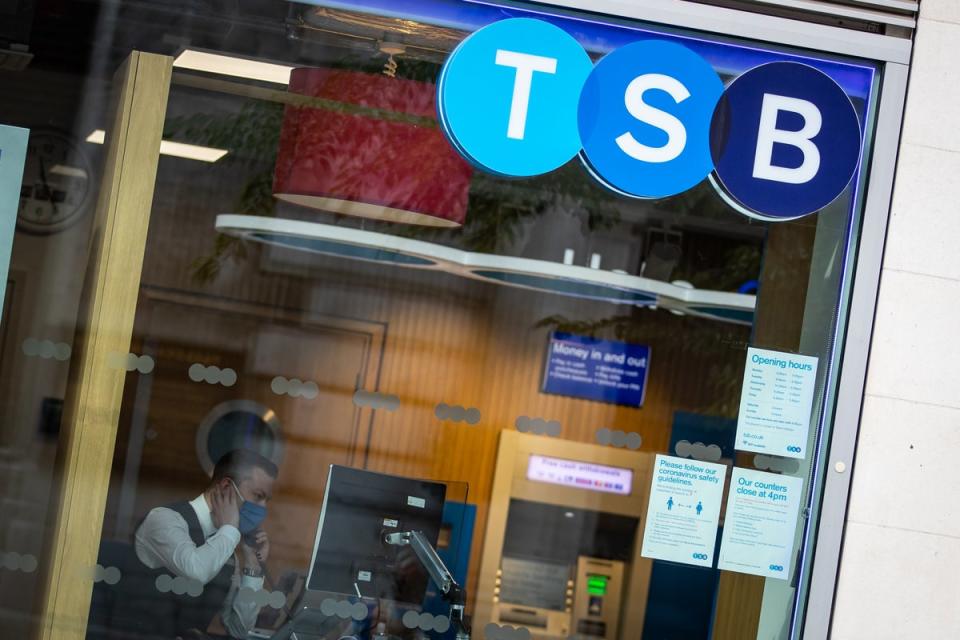Social media giants must help us clamp down on soaring fraud, says bank boss

The boss of one of the UK’s top high-street banks has called on online giants such as Facebook to pull their weight in combatting Britain’s growing fraud epidemic.
Robin Bulloch, the CEO of TSB, said social media companies are a growing starting point for fraud as they allow criminals free access to vast numbers of potential victims.
Bank fraud costs Britons more than £1bn a year, according to industry statistics. TSB led the charge five years ago in agreeing to compensate victims of fraud when people had lost money through no fault of their own.

“The majority of fraud starts online, specifically on social media, and it is high time that tech firms step up to protect people using their sites,” wrote Mr Bulloch in an op-ed for The Independent, in which he pushed for tech companies to contribute to the reimbursement of people who are defrauded on their platforms.
Casting fresh light on how criminals are attempting to snare new victims, figures released by TSB show that fraud on social media platforms accounted for 61 per cent of all cases in which their customers had accidentally sent scammers money in the first three months of this year.
Four in five of these cases involved purchase fraud, where criminals falsely list discounted items for sale that never arrive once paid for, according to the bank.
Notably, 71 per cent of these cases stemmed from Facebook, TSB said, warning that it was “deeply concerned by the high levels of fraud from tech companies and Meta-owned social media sites”.

In one instance, a woman was scammed out of £4,000 by someone posing as a stonemason while she was searching for a suitable headstone after the death of her son.
In another, a woman transferred funds to a bank account after what she thought was an urgent request from her daughter.
As the first bank to start reimbursing customers who fell victim to fraud before the practice became mandatory across the industry, TSB said it had been seeking to highlight a “lack of sufficient protections and controls” on social media platforms.
Mr Bulloch wrote: “In October, I met with the European head of Meta, which operates Facebook, Instagram and WhatsApp, and shared evidence of where our customers are the victims of fraudsters on their platforms.
“We shared individual case studies, highlighting both the economic and emotional impact of what fraud can mean to innocent consumers tricked by criminals.
“It was a good discussion, but I was struck by how these fast-growing young industries have much less regulatory scrutiny and seem far more removed from their customers than I see in retail banking. And the recent focus on fake news and conspiracy theories has raised even more questions about how the tech sector is governed.”

TSB’s data echoes the findings of industry body UK Finance, which reported recently that 77 per cent of all “authorised push-payment” (APP) fraud among its members in the first half of 2023 had originated online – through fake websites, social media, and other digital platforms. Push-payment fraud is where a victim is tricked into actively sending money to a fraudster’s bank account.
This type of fraud cost victims £239.3m in the first half of last year. Banks and card operators reported a record 116,324 cases of APP fraud over that period.
In one recent instance, Monzo was ordered to refund more than £23,000 in May 2023 to a customer who became snared in a cryptocurrency scam after coming across an advert on Facebook.
The victim had been “looking to slow down and work less as he had a difficult manual job which was taking a physical toll on his body”, when he spotted an advertisement that appeared to offer the services of an expert in helping people to trade in cryptocurrency, according to the Financial Ombudsman Service.
After completing a contact form, the scammer posed as an “account manager” who persuaded the victim to transfer funds to them, ostensibly for the purpose of investment. But after transferring a total of more than £34,000 in the space of four months, the victim found himself unable to access his supposed profits or get his money back.
One woman said she had been tricked last September into sending £100 supposedly for courier fees when selling a sofa, while others recounted paying for items as diverse as Xbox consoles and pushchairs that ultimately never arrived.
In his op-ed, Mr Bulloch said TSB hopes soon to see details of the impact of the commitments made by Meta and other tech companies in the voluntary Online Fraud Charter, which was announced by the home secretary last November.
But he warned that, in order to make a meaningful difference, “this should set out how the social media platforms will strengthen customer protection from fraud, incentivised by how they will contribute to any financial loss by customers targeted on their platforms”.
He added: “Whichever industry we belong to, whatever size of business we run and however long it has been around, business leaders must strive to be both innovative and responsible to tackle common threats and, in doing so, truly demonstrate that they are on the side of their customers.”
A Meta spokesperson said: “With tens of millions of people using our apps daily in the UK, we recognise our important role in tackling the industry-wide issue of fraud.
“We are continually investing in protections against fraud on our platforms, and work closely with law enforcement and regulators to tackle this issue. We encourage our community to be vigilant and report scams immediately so we can take action swiftly.”

